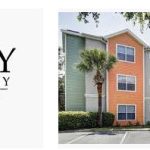The University of Florida Levin College of Law was founded in 1909, when Florida’s first law school was established in Gainesville. Since then, the college has grown to become one of the top-ranked law schools in the nation. The college has an illustrious history of producing some of the most prominent lawyers, judges, and legal scholars in the country. The college also boasts a diverse faculty and student body from across the country and around the world. The college offers a wide range of courses that cover all aspects of law, including constitutional law, criminal law, corporate law, international law, intellectual property law, and environmental law. The college also has numerous clinics that provide students with hands-on experience in real-world legal situations. Additionally, the college offers a variety of extracurricular activities for students to get involved in their communities outside of class. These activities include pro bono work with local nonprofits and government agencies as well as moot courts and moot trial competitions which allow students to practice their skills before a panel of judges or attorneys.
University of Florida Levin College of Law is located in the state of Florida. As one of the leading law programs, University of Florida Levin College of Law has a high average LSAT score of 158-163 when recruiting new students. As a return, the median starting salary for law graduates reaches $85,000 per year. See the following table for detailed admissions information and career profiles of University of Florida Levin College of Law.
Admissions: University of Florida (Levin)
The admissions statistics of the University of Florida Levin College of Law varies from year to year. In 2018, the school had an overall acceptance rate of 18%. Out of the 3,100 applicants, 558 were accepted to the law school. The median GPA for incoming students was 3.63, and the median LSAT score was 158. Furthermore, in terms of diversity, women made up 48% of admitted students and underrepresented minorities constituted 11% of accepted applicants. Additionally, 25% of admitted students were from out-of-state and 75% were from Florida residents. These admissions statistics demonstrate that UF Law is a competitive law school that attracts a diverse pool of applicants each year.
| Fall 2019 Admissions and Enrollment Statistics | |
|---|---|
| Total number of full- and part-time applicants | 3,170 |
| Total number of full- and part-time acceptances | 780 |
| Overall acceptance rate | 24.6% |
| Total number of full- and part-time first-year students enrolled | 307 |
| Number of full-time program applicants | 3,170 |
| Number of full-time program acceptances | 780 |
| Full-time acceptance rate | 24.6% |
| Number of first-year full-time students enrolled | 307 |
| Number of part-time program applicants | 0 |
| Number of part-time program acceptances | 0 |
| Part-time acceptance rate | N/A |
| Number of first-year part-time students enrolled | 0 |
| Fall 2019 GPA and LSAT Scores | |
| 25th-75th percentile GPA scores for all students | 3.42-3.85 |
| 25th-75th percentile LSAT scores for all students | 158-163 |
| 25th-75th percentile undergraduate GPA for full-time students | 3.42-3.85 |
| 25th-75th percentile LSAT scores for full-time students | 158-163 |
| 25th-75th percentile undergraduate GPA for part-time students | N/A |
| 25th-75th percentile LSAT scores for part-time students | N/A |
Careers: University of Florida (Levin)
| Bar Statistics (Winter and Summer 2018 administrations) | |
|---|---|
| State where the greatest number of first-time test takers took the bar | FL |
| School’s bar passage rate for first-time test takers | 88.9% |
| Statewide bar passage rate for first-time test takers | 80.7% |
| Class of 2018 Graduates | |
| Total graduates | 482 |
| Graduates employed at graduation | 76.2% |
| Graduates known to be employed nine months after graduation | 96.6% |
| Starting Salaries of 2018 Graduates Employed Full-time | |
| 25th percentile private sector starting salary | $70,000 |
| Median private sector starting salary | $85,000 |
| 75th percentile private sector starting salary | $130,000 |
| Percent in the private sector who reported salary information | 73% |
| Median public service starting salary | $44,500 |
| Areas of Legal Practice (Class of 2018) | |
| Percent employed in academia | 2.9% |
| Percent employed in business and industry | 8.2% |
| Percent employed in government | 13.3% |
| Percent employed in all judicial clerkships | 4.6% |
| Percent employed in law firms | 65.0% |
| Percent employed in public interest | 4.8% |
| Percent employed in an unknown field | 1.2% |
| Percent employed in a judicial clerkship by an Article III federal judge | 3.3% |
| 2018 Graduates Employment Location | |
| Graduates employed in-state | 75% |
| Graduates employed in foreign countries | 1% |
| Number of states where graduates are employed | 23 |
| New England (CT, ME, MA, NH, RI, VT) | 0.7% |
| Middle Atlantic (NY, NJ, PA) | 3.3% |
| East North Central (IL, IN, MI, OH, WI) | 1.9% |
| West North Central (IA, KS, MN, MO, NE, ND, SD) | 0.2% |
| South Atlantic (DE, DC, FL, GA, MD, NC, SC, VA, WV) | 86.5% |
| East South Central (AL, KY, MS, TN) | 1.0% |
| West South Central (AR, LA, OK, TX) | 1.2% |
| Pacific (AK, CA, HI, OR, WA) | 1.7% |
| Mountain (AZ, CO, ID, MT, NV, NM, UT, WY) | 0.2% |
| Employment location unknown | 1.9% |
| Career Services | |
| (Data appear as originally submitted by this school) | |
| Career services operations | The college’s Center for Career Development has 4 full-time and 2 part-time professional staff members who assist the student body. The Center hosts workshops each year to inform students of job trends, opportunities, and interviewing skills. It also coordinates our extensive On-Campus Interviewing (OCI) each fall and spring and participates in numerous off-campus recruiting events. |
| Job Type | |
| Bar admission required or anticipated (e.g., attorney and corporate counsel positions, law clerks, judicial clerks) | 90.7% |
| J.D. preferred, law degree enhances position (e.g., corporate contracts administrator, alternative dispute resolution specialist, government regulatory analyst, FBI special agent) | 4.3% |
| Professional/other (jobs that require professional skills or training but for which a J.D. is neither preferred nor particularly applicable; e.g., accountant, teacher, business manager, nurse) | 1.9% |
| Nonprofessional/other (job that does not require any professional skills or training or is taken on a temporary basis and not viewed as part of a career path) | 1.7% |









